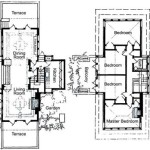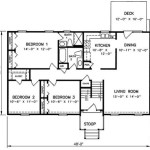Home Warranty of America Diamond Plan: A Comprehensive Overview
The Home Warranty of America (HWA) Diamond Plan represents one of the higher-tier offerings within the home warranty industry. Home warranties, unlike homeowner's insurance, are designed to cover the repair or replacement of major home systems and appliances that fail due to normal wear and tear. This distinguishes them from insurance, which typically covers damage resulting from unforeseen events like natural disasters or accidents. The Diamond Plan purports to offer extensive coverage, aiming to provide homeowners with financial protection against the often-unexpected expenses associated with system and appliance breakdowns.
Understanding the specifics of the Diamond Plan requires a thorough examination of its covered items, limitations, exclusions, processes for filing claims, and the associated terms and conditions. Potential customers should carefully weigh these factors against their individual needs and the age and condition of their home's systems and appliances.
Key Point 1: Coverage Scope and Specifics
The HWA Diamond Plan generally covers a comprehensive range of home systems and appliances. These commonly include, but are not limited to:
- Heating Systems: Furnaces, heat pumps, and related ductwork. Coverage typically extends to essential components impacting the heating function.
- Air Conditioning Systems: Central air conditioners and related components. Coverage focuses on functional failures and does not usually include routine maintenance.
- Plumbing Systems: Water heaters, toilets, faucets, and pipes (subject to limitations regarding pre-existing conditions and access).
- Electrical Systems: Wiring, circuit breakers, and electrical panels. Coverage addresses functional breakdowns and potential safety hazards.
- Kitchen Appliances: Refrigerators, ovens, ranges, dishwashers, garbage disposals, and built-in microwaves. Specific coverage depends on the appliance's age and condition.
- Laundry Appliances: Washers and dryers. Similar to kitchen appliances, coverage is contingent on the appliance's operational status and pre-existing conditions.
Beyond these core items, the Diamond Plan may offer supplemental coverage options or enhancements. These could include coverage for items like swimming pools, septic systems, well pumps, or even coverage for roof leaks (often with limitations). It is crucial to scrutinize the plan's documentation to ascertain precisely what is covered and under what circumstances. Each covered item will have specific limitations and possible exclusions, which are outlined in the contract.
It is imperative to meticulously review the plan's terms and conditions to understand specific coverage details. For instance, while a refrigerator might be covered, a specific component within the refrigerator, such as the ice maker, could be excluded. Similarly, plumbing coverage might be limited to repairs involving accessible pipes and may not extend to issues arising from tree root intrusion or frozen pipes due to negligence. Understanding these nuances is essential to avoid disappointment when filing claims.
Key Point 2: Claim Process and Service Procedures
Understanding the claim process is critical for homeowners considering the HWA Diamond Plan. The typical claim process unfolds as follows:
- Identifying a Problem: When a covered system or appliance malfunctions, the homeowner must first identify the issue.
- Contacting HWA: The homeowner then contacts HWA, typically through a phone call or online portal, to report the problem and initiate a claim. It's vital to do this as soon as possible after discovering the issue.
- Service Fee: A service fee, also known as a deductible, is paid by the homeowner for each service request. This fee represents the homeowner's contribution towards the repair or replacement cost. The service fee amount is predetermined and outlined in the plan agreement.
- Technician Dispatch: HWA then dispatches a qualified service technician to the homeowner's residence to diagnose the problem. HWA typically maintains a network of pre-approved technicians.
- Diagnosis and Repair/Replacement: The technician assesses the situation and determines the cause of the malfunction. If the problem is covered under the Diamond Plan, HWA authorizes the necessary repairs or, if repair is impossible or not cost-effective, replacement of the covered item, subject to the plan's limitations and exclusions.
- Claim Settlement: HWA handles the payment to the service technician for the covered repair or replacement, minus the service fee paid by the homeowner.
Several factors can influence the efficiency and outcome of the claim process. Homeowners should be aware of the following:
- Response Time: HWA states its typical response time, the time it takes to dispatch a technician. Emergency situations, such as a complete loss of heating or cooling in extreme weather, may warrant expedited service.
- Technician Quality: The quality of the service technician can significantly impact the repair's effectiveness. Homeowners should inquire about HWA's technician vetting process and the possibility of requesting a second opinion if dissatisfied with the initial diagnosis.
- Approval Process: The time it takes for HWA to approve repairs or replacements can vary. Clear communication and prompt provision of any required documentation from the homeowner's side can help expedite the process.
- Denials: Claims can be denied for various reasons, including pre-existing conditions, improper maintenance, or exclusions outlined in the plan. Homeowners should understand the reasons for denial and explore options for appealing the decision if they believe the denial is unwarranted.
Key Point 3: Limitations, Exclusions, and Contractual Nuances
Perhaps the most critical aspect of understanding the HWA Diamond Plan lies in comprehending its limitations, exclusions, and other contractual nuances. These factors often determine the actual value of the plan and its suitability for individual homeowners.
Common limitations and exclusions include:
- Pre-Existing Conditions: Home warranties generally do not cover pre-existing conditions, defined as issues that existed prior to the plan's effective date, even if the homeowner was unaware of them.
- Improper Maintenance: Failures resulting from improper maintenance, neglect, or misuse of covered items are typically excluded. Regular maintenance, such as changing filters or cleaning coils, is the homeowner's responsibility.
- Cosmetic Defects: Coverage usually extends only to functional breakdowns, not cosmetic defects such as scratches, dents, or discoloration.
- Code Violations: Repairs or replacements necessary to bring a system or appliance into compliance with current building codes may not be covered.
- Specific Components: Certain components within covered systems or appliances might be specifically excluded from coverage.
- Consequential Damage: Damage resulting from the failure of a covered item, such as water damage caused by a leaking pipe, may not be covered.
- Acts of God: Damage caused by natural disasters, such as floods or earthquakes, is almost universally excluded.
- Maximum Payout Limits: The plan likely has maximum payout limits per item and/or per contract term. These limits define the maximum amount HWA will pay for repairs or replacements.
Other important contractual considerations include:
- Contract Length: The duration of the warranty contract, typically one year, and the renewal process.
- Cancellation Policy: The terms and conditions for canceling the warranty contract, including any associated fees or penalties.
- Transferability: Whether the warranty can be transferred to a new homeowner if the property is sold.
- Arbitration Clause: Many home warranty contracts include an arbitration clause, which mandates that disputes be resolved through arbitration rather than through the court system.
Careful review of the entire Diamond Plan contract is essential before purchasing the plan. Prospective buyers should pay close attention to the fine print and seek clarification from HWA representatives on any ambiguous or unclear terms. Understanding these limitations and exclusions is crucial to managing expectations and assessing the true value of the home warranty.
Furthermore, homeowners should consider obtaining independent inspections of their home's systems and appliances prior to purchasing a home warranty. This can help identify any pre-existing issues that would be excluded from coverage and inform the decision of whether or not a home warranty is truly necessary. It's also beneficial to compare the HWA Diamond Plan with offerings from other home warranty companies, considering factors such as coverage scope, cost, service fees, and customer reviews. Making an informed decision based on a comprehensive understanding of the plan's terms and conditions will help homeowners maximize the value of their investment and avoid potential disappointments down the line.

Home Warranty Of America Updated July 2025 116 Reviews Northbrook Illinois Real Estate Services Phone Number Yelp
888 492 7359 Hwahomewarranty Com

127 Home Warranty Of America Reviews Hwahomewarranty Com Consumer
5 Best Home Warranty Companies For Heat Pumps 2025 Today S Homeowner

Home Warranty Of America Trusted Warranties

Best Home Warranty Companies Of 2025

Home Warranty Of America Updated July 2025 116 Reviews Northbrook Illinois Real Estate Services Phone Number Yelp
5 Best Home Warranties For Veterans Customer Reviews Costs More

127 Home Warranty Of America Reviews Hwahomewarranty Com Consumer

Afc Home Warranty Plans Hassle Free Coverage You Can Trust








